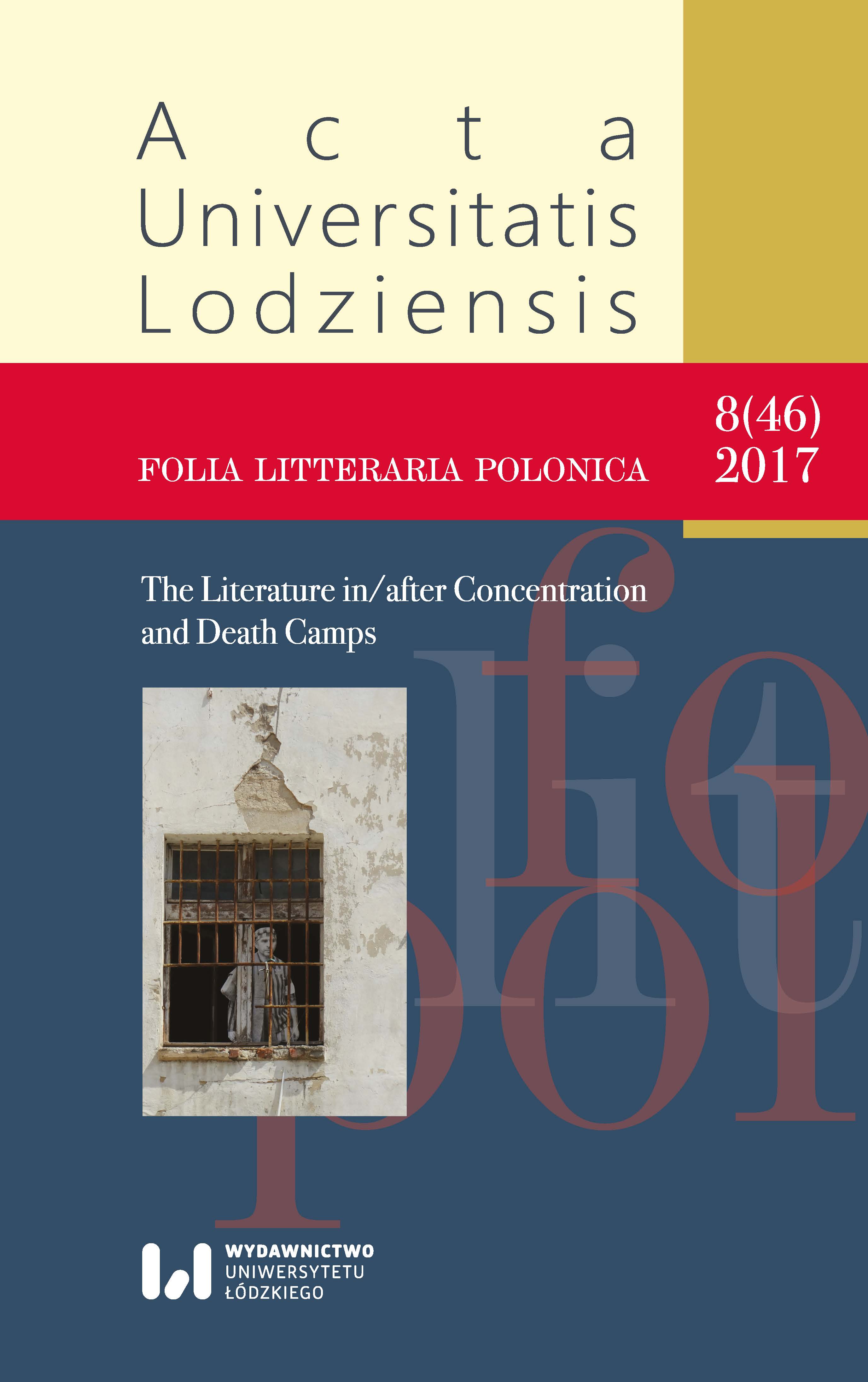How to describe “the world of colossal absurd”? On the grotesque in Gulag literature
DOI:
https://doi.org/10.18778/1505-9057.46.04Słowa kluczowe:
a soviet camp, a grotesque, a satire, the totalitarianism, hyper-realityAbstrakt
The main aim of the paper is to reflect on the various forms of the disclosure and the use of the grotesque in the Polish camp literature. Prisoners, authors of books devoted to life in the camps, experienced life in conditions that we did not normally recognize as impossible. In this sketch I try to show the ways of using (or not-using) of this experience in literature. Many Polish writers emphasized the importance of ridicule in the description of the world of the camp, because “it sees sharper, it clearly draws”, but that perspective often lacked in their books. However, there were writers (Grubinski and Wittlin) who put the world of Soviet slavery in satirical way, often in the form of “laughter through tears” (close to Bachtin’s conception). There were also writers (Lipski and Mayewski) who dispassionately exposed the horror of the atrocity of the camp, they took the game with the absurd (close to Kayser’s conception). Finally, there was a writer (Olszewski) who attempted to capture the entire Stalinist world as a grotesque.
Pobrania
Bibliografia
Grubiński Wacław, Między młotem a sierpem, Wydawnictwo „Czytelnik”, Warsaw 1990.
Google Scholar
Herling-Grudziński Gustaw, Inny świat. Zapiski sowieckie, Czytelnik, Warsaw 1998.
Google Scholar
Krakowiecki Anatol, Książka o Kołymie, Katolicki Ośrodek Wydawniczy „Veritas”, London 1950.
Google Scholar
Lipski Leo, Dzień i noc. Na otwarcie kanału Wołga-Don, Wydawnictwo UMCS, Lublin 1998.
Google Scholar
Lipski Leo, Piotruś, Oficyna Druków Niskonakładowych, Olsztyn 1995.
Google Scholar
Mayewski Paweł, Rzeka, trans. from English J. Kempka, Oficyna Poetów i Malarzy, London 1960.
Google Scholar
Naglerowa Herminia, Ludzie sponiewierani, Biblioteka Orła Białego, Rome 1945.
Google Scholar
Naglerowa Herminia, Kazachstańskie noce, Katolicki Ośrodek Wydawniczy „Veritas”, London 1958.
Google Scholar
Olszewski Witold, Budujemy kanał. Wspomnienia kierownika Biura Planowania, Polski Dom Wydawniczy, Rome 1947.
Google Scholar
Skarga Barbara, Po wyzwoleniu…(1945-1956), Wydawnictwo „W drodze”, Poznań 1990.
Google Scholar
Voynovich Vladimir, Życie i niezwykłe przygody żołnierza Iwana Czonkina, trans. Wiktor Dłuski, Fabryka Bestsellerów, Warsaw 2012.
Google Scholar
Wittlin Tadeusz, Diabeł w raju, Wydawnictwo „Polonia”, Warsaw 1990.
Google Scholar
Bachtin Mikhail, Twórczość Franciszka Rabalais’go a kultura ludowa średniowiecza i renesansu, trans. Anna and Andrzej Goreń, Stanisław Balbus (ed.), Wydawnictwo Literackie, Krakow 1975.
Google Scholar
Bolecki Włodzimierz, “Groteska, groteskowość”, in: Słownik literatury polskiej XX wieku, editorial team: Alina Brodzka, Mirosława Puchalska, Małgorzata Semczuk, Anna Sobolewska, Ewa Szary-Matywiecka, Zakład Narodowy im. Ossolińskich, Wrocław – Warsaw – Krakow 1992, pp. 345–361.
Google Scholar
Burska Lidia, “Obozowa literatura”, in: Słownik literatury polskiej XX wieku, editorial team: Alina Brodzka, Mirosława Puchalska, Małgorzata Semczuk, Anna Sobolewska, Ewa Szary-Matywiecka, Zakład Narodowy im. Ossolińskich, Wrocław – Warsaw – Krakow 1992, pp. 740–746.
Google Scholar
Dudek Andrzej, “Groteska jako próba realizmu. O książce Włodzimierza Wojnowicza”, in: Emigracja i tamizdat: szkice o współczesnej prozie rosyjskiej, Andrzej Drawicz (ed.), Wydawnictwo „Universitas”, Krakow 1993, pp. 225–248.
Google Scholar
Groteska, Michał Głowiński (ed.), słowo/obraz terytoria, Gdańsk 2003.
Google Scholar











